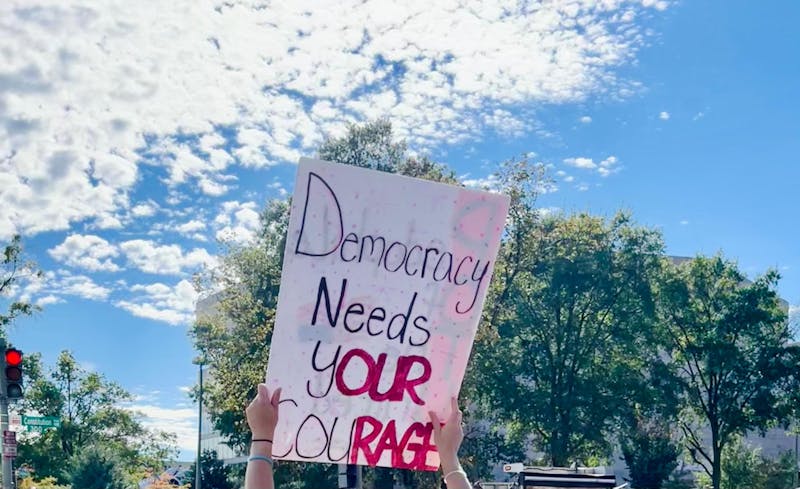The landscape of freedom, values, and equal opportunity in the United States faces significant challenges, as highlighted in a recent commentary by Deviana Dewi, a PhD candidate at Johns Hopkins University. Dewi, originally from Purwakarta, Indonesia, addresses the erosion of these foundational principles in light of proposed immigration policies that threaten to undermine America’s legacy as a beacon for global talent.
Dewi’s reflections draw on the historical context of American universities, which have served as vital centers of knowledge and innovation since the post-World War II era. She cites 1945 when Vannevar Bush, a wartime science advisor under President Franklin D. Roosevelt, advocated for federal support of basic research in his report, “Science, The Endless Frontier.” This report emphasized the importance of research for national security and public welfare, fostering an environment that attracted a diverse range of talents, including many fleeing persecution in Europe.
At the heart of American identity is the notion of freedom, which Dewi argues is inextricably linked to the rule of law. She quotes Pope Saint John Paul II, stating, “Freedom consists not in doing what we like, but in having the right to do what we ought.” This perspective underscores the responsibility that comes with freedom, necessitating a legal framework to guide judgment and maintain societal order.
Concerns Over Recent Policy Proposals
Dewi expresses concern regarding recent legislative measures that threaten to restrict opportunities for skilled foreign workers. Specifically, she references a proposed $100,000 application fee for H-1B visas, aimed at promoting American job retention. Additionally, she highlights the American Tech Workforce Act, introduced by Congressman Jim Banks, which seeks to end the Optional Practical Training (OPT) program. This program currently allows international students to gain valuable work experience in the U.S. after graduation.
Dewi argues that these initiatives contradict the principles of equal opportunity and meritocracy that have historically defined the U.S. job market. She emphasizes that the inclusion of skilled foreign workers has contributed significantly to the American economy, citing examples like Elon Musk, who arrived in the U.S. on an H-1B visa and later founded impactful companies such as SpaceX and Tesla.
The proposed policies not only risk isolating the U.S. from global talent but also undermine the values of fairness and opportunity enshrined in American society. Dewi warns that if these measures succeed, they could diminish the country’s reputation as “the land of the free and the home of the brave.”
A Call to Action
Dewi encourages international students and others affected by these policies to actively engage with their elected officials. She recounts her experience living with a Capitol Hill staffer, who noted the importance of citizen input in shaping policy discussions. “While we cannot guarantee that your representatives will agree with you,” she states, “we can be sure that they listen to you.”
Highlighting the privilege of being able to ignore political issues, Dewi calls for a collective responsibility to advocate for those whose voices are often marginalized in policy debates. She emphasizes that hope is a powerful motivator, inspiring individuals to act in pursuit of justice and truth.
As the U.S. navigates these complex discussions around freedom, values, and opportunity, the insights shared by Dewi resonate deeply within the broader context of American democracy. Her commitment to upholding these principles reflects a dedication to ensuring that the United States remains a land of opportunity for all, regardless of background or nationality.







